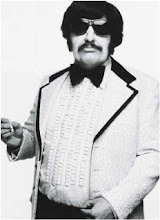Craps can trace it's origins as far back as 600 BC in ancient Egypt. Famous Roman emperors Augustus, Caligula, and Nero were known dice aficionados. Traces of dice usage were found in various parts of the world, in the Americas where American Indians used knucklebones to create dice. Even in the Arab world, the Arab term for dice and knucklebones were the same.
The earliest users of the dice were fortunetellers and shamans. They used the dice, then sacred devices like sticks, stones and bones, to predict the future. Of course, the features of the dice changed and evolved through the years.
Though the history of dice dates thousands of years ago, the game of craps is only a few hundred years old. The craps game is said to have come from and a direct descendant of the English game Hazard. Hazard was played during the Third Crusades when leaders such as Richard the Lion-hearted, Frederick Barbossa, and Philip Augustus of France led legions of armies to reclaim the Holy Land. It is said that soldiers at camp would play the game with dice and their shields as tables.
The French took elements of Hazard and formed the game crapaud (a French word meaning "toad"), when it came to the US in the 1800's it was eventually shortened it to craps.
Craps as a game changed and evolved since then. The casino craps table layout has developed through the years. It took sometime before the game of craps was revolutionized by John H. Winn. He enabled craps players to bet right or wrong. He also improved the craps table layout by placing a space for Don't Pass bets. In 1931, the game of craps and other gambling games were legalized in Nevada. Since then craps flourished to different parts of the world making craps, Las Vegas style, a casino favorite in all parts of the globe.
Variations of the game have been developed, the most popular being street craps, and other dice games such as Cee-lo can find origins in the craps game.
Well, I hope you enjoyed this brief history. Thanks for stopping by.
Monday, June 30, 2008
Subscribe to:
Post Comments (Atom)

No comments:
Post a Comment